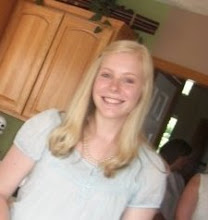"It should feel delicious!"
--Karen Tuttle
A week ago at this time, I was sitting in the recital hall at Oberlin Conservatory, surrounded by 40-some fellow violists, watching Kim Kashkashian give a masterclass that was truly inspiring and a little mind-blowing. This final class brought the Karen Tuttle Coordination Workshop to a close, marking the end of an incredible weekend exploring the physical and emotional connections necessary for projecting musical ideas.
Karen Tuttle was one of the great viola pedagogues of the past century, teaching at notable institutions such as Curtis, Julliard, and Peabody, and she developed a distinct philosophy which she eventually termed Coordination. These principles are based on the sole premise that if something doesn't feel good, you're doing it wrong. Studying with William Primrose, Tuttle admired his free approach to the viola and would sit and observe his practice, allowed to poke and feel what he was doing--he often claimed that she knew more about his playing than he did!
If you look in a dictionary, coordination is defined as a state or relation of harmonious adjustment or functioning. The applications to viola playing are numerous and complex. At the end of the introductory group class on the first day, one of the faculty members remarked, "I'm sure you're all thinking: Is it this complicated to be natural?!" Essentially, the goal is to approach the instrument as organically as possible. If you understand how your body was made to move, it changes how you play viola. If you approach the instrument with a natural sense of balance, tension, and release, you are going to be much more free.
Oftentimes, when we are doing something, we grip or hold muscles, preventing our bodies from natural movements that occur in a balanced body. I'd say this couldn't be truer when playing an instrument. Several faculty members referenced the following concept: Pretend like you're punching someone. The natural motion of throwing your arm forward makes your head go back. Tuttle believed this should be incorporated during down bows with a neck release. Basically, in order to remained balanced, every motion has an opposite response somewhere in the body, and it's crucial that we let those releases occur if we want to remain free of tension--whether you're playing viola or doing something as simple as walking.
A natural physical approach to the instrument ultimately serves to project emotion. As Kashkashian described, "As musicians, we are living through the emotions produced by our instrument. The instrument expresses emotion, not the body. When we want an intense sound, that's when we need to release the body. The physical response has to relate to the tension at the contact point. Relate to your tools."
This workshop was immensely helpful for me. For the first time, I believe that playing doesn't have to hurt, and that it is even possible for it to feel good! I know that pain and discomfort will be something I always struggle with, but there will moments of freedom. The most helpful feedback I received was that I need to work on grounding myself. I'm still exploring what this means, but it has to do with having more supple knees and sending energy into the floor, rather than having everything rise to the chest. We feel anxiety in our chests, so it is not a reliable source of power. It's better to be grounded in your legs and get power from your lower body. Added bonus: more active legs facilitate a released back!
This is only a taste of the many wonderful things I learned last weekend--I'll continue to share in posts to come! To conclude, Kashkashian aptly summarized the heart of the weekend: "Coordination is about so much more than playing viola. It's about how you drive your car. It's about how you relate to other people. It's about finding your natural power. It is deeply healthy and deeply passionate; a very rewarding pursuit."
I will defy.

No comments:
Post a Comment